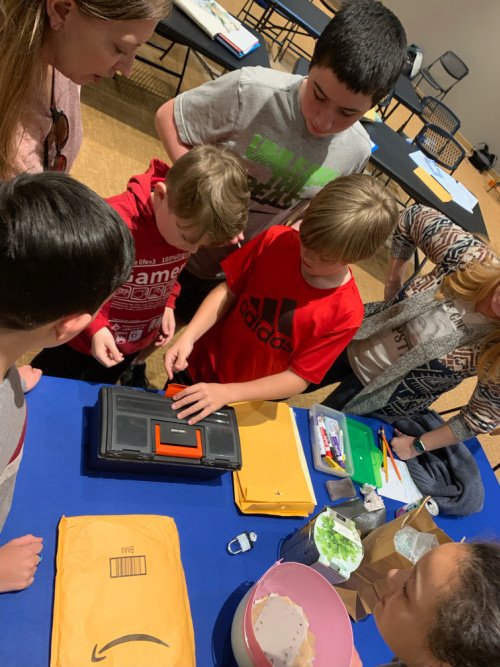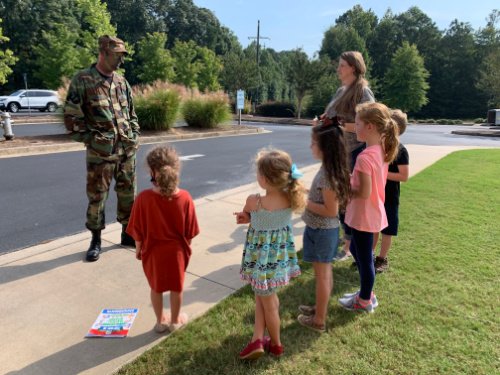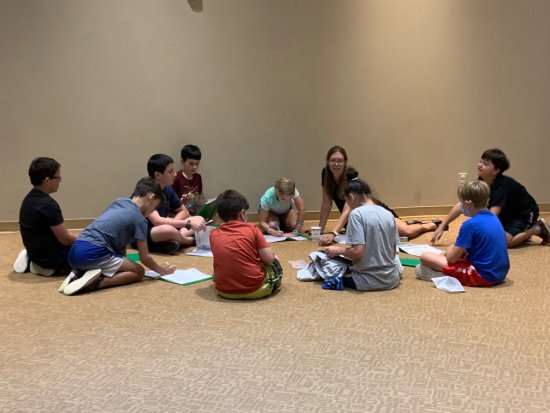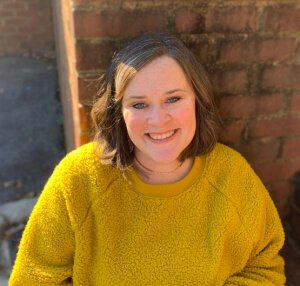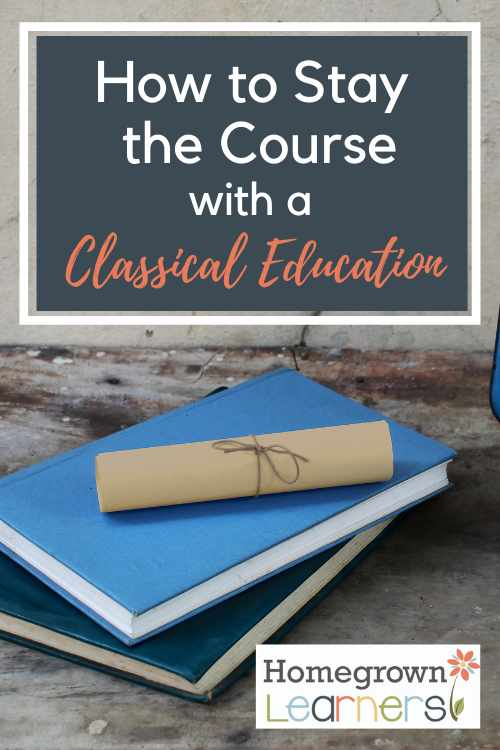Homeschool mom - you are NOT meant to be alone!
You were meant for community and your journey, whether just beginning or years in the making, will be richer, more rewarding, and simply more FUN if you engage with other like-minded individuals who are seeking to educate their children in a non-traditional manner.
Like many families, our first taste of homeschooling came about as a result of the school shutdowns due to the pandemic. We fell in love with the idea of being our children's primary teachers but the thought of making this change permanent was more than a little daunting.
As we researched all of the available options we quickly came to realize that embarking on this journey alone was not the only option and, in our opinion, definitely not the best option! Although still new to homeschooling (two years in August!) we have found that connecting with an established community provides a number of benefits.
Finding a homeschool community might not initially be easy, but it is worth the effort, time, and energy.
A Family New to Homeschooling
Our first year of homeschooling was done simply at home and without any type of outside organization. While we learned a lot and grew closer together as a family we realized that we all missed the interactive piece of school, parents, and kids alike.
At the end of year one, I began to research the various options for co-ops and other homeschooling groups that were available to us in our area.
We chose a local Classical Conversations community, but I believe there are a number of benefits that are common across ALL homeschool groups.
Access to more experienced homeschooling families who have seen and experienced many of the challenges that we are facing as newbies have been invaluable.
Simply having someone to ask how to best structure your days to what to focus on has made a world of difference.
Built-in peer groups for our children are also a huge plus.
We all want our kids to have friends and one of the flawed arguments for not homeschooling is that your children won’t be socialized. Our experience couldn’t have been further from this! One of the greatest benefits we have seen is that our children have been able to navigate interacting not only with children their age but also with children younger and older.
Doing life with like-minded families is important.
We specifically chose a Christ-centered community when we decided to be a part of Classical Conversations. It has been invaluable to be involved in a community of like-minded believers. It has also allowed us to grow in our faith as well as our education and really learn to connect the two together in ways I hadn’t learned as a child.
Having families walk alongside us who are raising their children according to Christian values and principles has made our homeschool year much richer.
Shared resources and curriculum have also been very beneficial.
There are a plethora of homeschool curricula out there. It can be difficult to know what will be best for our children and while looking at curriculum online is a great place to start, it has been great to share the resources of more experienced families.
There is something about having the physical access to materials that have helped us make the best decisions about which curriculum to pursue, and being able to do this without spending a lot of money up front has been an added bonus.
Being in a community with friends who share common values and who are pursuing the same goals when it comes to educating our children is so uplifting! Although we have all come into this homeschooling community from various backgrounds and for different reasons the shared ideals of educating our children on our own and not simply conforming to what the school system says we must do provides a shared bond.
This year alone we have taken field trips, had picnics and park trips, dinner with other families, mom’s nights out, group cookouts, and even a much-needed mom’s retreat weekend away.
I thought it would be beneficial not only to share my thoughts about homeschooling in community but to provide some responses I received from my family when I asked them why homeschooling is better in community.
Let’s Hear From the Family Members:
Luke, age 12:
It’s better because your parents can know the other kid’s parents and hopefully become life-long friends unlike in public school where your parents don’t usually even know the other students. Getting to spend time with my mom in school learning together also made it fun. Also with a co-op you get to have more field trips than you would likely ever have in your lifetime in public school!
Eliza Jane, age 7:
likes making new friends and having mommy get to come in your class when you are at school!
I also asked my husband, who doesn’t necessarily come with us each week on community day, but definitely hears all about our experiences when he gets home at the end of the day.
Jonathan said that he noticed much less anxiety in me as the teacher, primarily because I have been able to see other students who are years ahead in the program and are thriving and that our children can be very successful in this environment.
Secondly, he also noticed how excited our kids were to see the people that whom they have developed relationships. He knew that the kids would have a good education being homeschooled, but to see them developing socially and the positive interactions they’ve had with other kids as well has been a great benefit.
While homeschooling can be done effectively alone I would argue that finding your people will make the experience that much more enjoyable for both parents and kids. I also feel it will help you avoid that all too often feeling of burn-out that plagues parents trying to be both mom or dad as well as teacher.
We aren’t meant to homeschool alone! Find your people, engage with them and I’m confident you will find more support than you can imagine.
Are you in a homeschool community? Are you looking for one?
Tell me about it in the comments below.
This post is from Homegrown Learners contributor, Allison. She is a wife and mother with a passion for reading. With a background in Early Childhood Education as well as experience working in Corporate America, the events of 2020 exposed her to the rewards of teaching her own children at home. She hopes to encourage anyone who has ever been anxious about taking this leap with her own personal successes and failures during her family's first few years of homeschooling.


